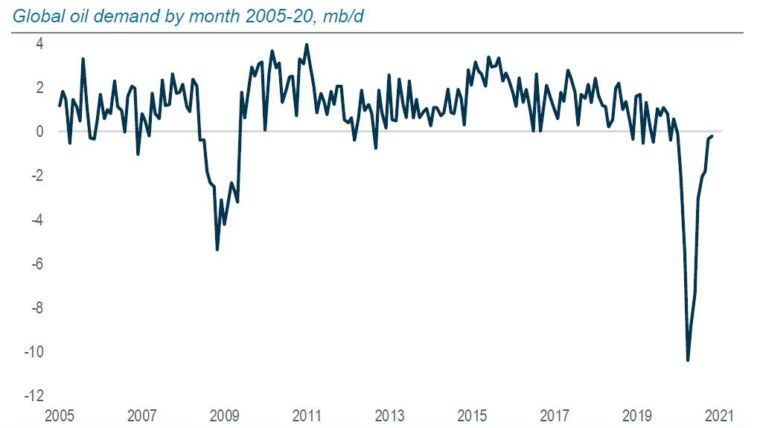For me and many others, divesting their investment portfolio from fossil fuel companies is a moral issue. Like the Sierra Club Foundation, that manages a $35 million investment portfolio, we did not want to be deriving our incomes from an industry who’s output was destroying the climate.
Sure, we still need gasoline and fossil fuel powered energy, at least for the time being. But the faster we can make the transition to renewable energy the better off we and our offspring will be.
Will divestiture make a difference in changing the future and the direction of energy investment? Time will tell but one of the reasons that seems to be holding back individuals and institutions that otherwise might do this is starting to be eliminated as a legitimate reason…investment returns. Increasingly the research is showing that not only does portfolio return not go down after divestment but actually increases!!!
So, Harvard, Yale and University of Chicago, what are you waiting for now?
Key passages:
“Asset managers have become increasingly aware of the risks exposure to oil, coal and natural gas companies presents. The so-called carbon bubble — high valuations of firms whose businesses rely on tapping into fossilized fuel reserves to profit — is becoming increasingly risky, many analysts maintain.”
“”We didn’t see any negative impact; in fact, it was a positive impact,” Locklin said. “There’s no material disadvantage” in divesting from fossil fuel holdings, he said.”
“They want to be seen as leaders against climate change,” he said.”
Fossil fuel divestment drive builds a beachhead in Europe but may
need a bigger push to succeed
Benjamin Hulac, E&E reporter
Published: Tuesday, October 14, 2014
Global climate change is an elusive challenge, with advocates who mainly tout incremental improvements rather than big victories and binding accords.
Despite that, in the campaign for fossil fuel divestment — a movement largely spurred on by college students, professors, advocacy groups and a handful of institutional investors — environmentalists may have found one of their biggest victories to date.
On Wednesday, the University of Glasgow became the first European university to commit to shedding its fossil fuel stocks, an act that many financial experts and divestment backers say has become easier in recent years.
“The university recognizes the devastating impact that climate change may have on our planet, and the need for the world to reduce its dependence on fossil fuels,” said David Newall, the secretary for the university’s governing body, in a statement. “Over the coming years, we will steadily reduce our investment in the fossil fuel extraction industry, while also taking steps to reduce our carbon consumption.”
Complete divestment will shift about £18 million from fossil fuel holdings over 10 years. The Scottish university oversees a £154 million ($247 million) endowment and, according to the university’s latest documents, directly holds shares in BP PLC, Royal Dutch Shell PLC, Chevron Corp., Statoil ASA, Total SA and BHP Billiton Ltd., the Melbourne, Australia-based mining firm.
“They were very concerned that they didn’t want to do a political statement,” said Sophie Baumert, a University of Glasgow student active in the on-campus group that spearheaded the divestment push, of the administration. “It’s a good thing to disassociate from fossil fuel companies.”
On-campus divestment campaigns are underway at more than 50 schools in the United Kingdom, Baumert said, and divestment organizers predict announcements from the University of Edinburgh and the University of London’s School of Oriental and African Studies before year’s end.
At the only U.K. schools with endowments above the £1 billion threshold — Cambridge and Oxford universities — divestment advocates have been rebuffed, though Oxford scholars made their case in an open letter and similar efforts are percolating at Cambridge.
Some ‘brand names’ hold back
Many of the most heavily endowed American colleges and universities — Harvard, Yale, Cornell and Brown universities and the University of California, among dozens more — have resisted, too, primarily citing fiduciary responsibility to their institutions’ long-term financial health.
University of Glasgow

The University of Glasgow. The fossil fuel divestment battle makes a beachhead on a campus in Europe. Photo by Hugo Cadavez, courtesy of Flickr.
Some opposed to divestment have said selling off the shares of oil, coal and natural gas firms would mean losing some reliable stocks with significant returns.
Still others reply that fossil fuel divestment won’t force the industry to change; instead, they say, the just-sold shares will simply be picked up by another investor, and the fossil fuel energy sector is so vast — an estimated $5 trillion, according to a Bloomberg New Energy Finance white paper — that any diversified portfolio should include fossil energy companies.
Organizers like Andrew Taylor, however, said the argument that divesting is a prudent, ethical decision has been effective.
“The moral argument is always kind of our primary argument,” said Taylor of People & Planet, a U.K. group that organized the University of Glasgow effort and is working with students at other U.K. schools.
“They want to be seen as leaders against climate change,” he said.
The British higher education system invests £5.2 billion annually in fossil fuel corporations, Taylor estimated, adding that the British Medical Association and the Oxford City Council recently moved to divest their assets, too.
The biggest names to join the movement — like Stanford University, which announced plans in May to divest its $18 billion endowment from coal holdings, and the Rockefeller Brothers Fund, which said it would do the same with its $860 million portfolio during the climate-change-themed week in New York City last month — carry symbolic weight in their actions.
Some nervousness about a ‘carbon bubble’
The divestment movement has attracted a coalition of diverse parties — religious groups, such at the World Council of Churches and the Church of Sweden; more than a dozen U.S. cities, including Seattle, San Francisco and Providence, R.I.; and numerous foundations and philanthropies, like the Ben & Jerry’s Foundation and the Robert and Patricia Switzer Foundation. Still, the money earmarked for divestment remains relatively small compared to fossil fuel firms’ mammoth market value.
“I think what we’re seeing with fossil fuel divestment is a series of encouraging tipping points,” said Emily Kirkland of the Better Future Project, a Massachusetts-based organization focused on divestment. “Divestment has become a mainstream idea in financial circles.”
Financially boycotting fossil energy companies shifts public opinion and sparks discussion, Kirkland said. All three Democratic candidates for Massachusetts’ treasurer support fossil fuel divestment, she added, and though state lawmakers recently voted down a divestment bill, Kirkland is confident it will be introduced next legislative session.
“We’ve had 10 cities adopt resolutions calling for divestment,” Kirkland said, adding that a “lack of information” about the long-term divestment risks and payoffs is a significant reason the movement receives blowback. “You can absolutely create a diversified portfolio that doesn’t have volatile swings,” she said.
Asset managers have become increasingly aware of the risks exposure to oil, coal and natural gas companies presents. The so-called carbon bubble — high valuations of firms whose businesses rely on tapping into fossilized fuel reserves to profit — is becoming increasingly risky, many analysts maintain.
“It’s time for investors to take a much more sophisticated strategy” in order to mitigate carbon asset risk, said Ken Locklin, a senior portfolio adviser and U.S. policy analyst at Impax Asset Management.
Ways to diversify without fossil fuels
In 2013, Locklin and his colleagues published a report outlining the growing pressure institutional investors feel to divest or at least “assess their exposure to companies that extract fossil fuels.”
Examining the common notion that eliminating fossil fuel stocks from one’s portfolio increases volatility and could lead to diminished or negative returns, the report tested four different portfolios.
Tinkering with different styles of management — active or passive — and mixing stocks in renewable energy and energy-efficient stocks, the Impax analysts found that all four scenarios generated positive returns.
Although the window the Impax team scrutinized predates the swift run-up in energy prices before the 2008 economic crash — they “back-tested” how stocks performed between April 2008 and April 2013 — the outcome “mirrors recent research carried out by MSCI and the Aperio Group,” two financial information companies, the report said.
“We didn’t see any negative impact; in fact, it was a positive impact,” Locklin said. “There’s no material disadvantage” in divesting from fossil fuel holdings, he said.
While students and activists at hundreds of colleges and institutions in the United States and worldwide continue to press for divestment — 181 local governments and institutions and 656 individuals had taken the pledge as of mid-September, according to Arabella Advisors — the advocacy group 350.org, which has largely led the divestment charge, has its sights on bigger targets.
“We’re looking to really score a couple of big wins,” said Jamie Henn, the strategy and communications director and co-founder of 350.org. “We’re adamant toward pushing for full divestment.”
Targeting big pension funds
The movement is expanding globally and gaining traction at the municipal level, Henn said, pointing to Massachusetts, New York and New York City as targets for 2015.
In Massachusetts, Kirkland said, the push to jettison fossil holdings from the state pension fund has been led by pensioners who view divestment as “ethically and financially savvy.”
Public pension funds like the California Public Employees’ Retirement System, or CalPERS, the largest U.S. fund, with $295 billion in total assets, have divested under public pressure before — selling their stakes in gun manufacturing and tobacco firms, among other companies.
CalPERS made national headlines last month when it announced it was getting out of hedge funds. Any news that the fund, or any other public investor, was dropping fossil holdings would likely trigger bigger shock waves.
However, regarding climate risk, CalPERS’ “view is that the solution lies in tackling energy companies through an engagement process focused on finding solutions, rather than walking away,” the fund wrote July 11 in response to a call for divestment.
During the last two decades, the statement reads, “we have been at the forefront of tackling climate change issues through policy advocacy, engagement with portfolio companies, and investing in climate change solutions, something we would not be able to do if we did not have a seat at the table.”
While CalPERS ratified a statement this year — along with 355 other investors collectively charged with about $24 trillion in assets — the fund has only pledged to identify climate risks in its investments.
Locklin, the portfolio adviser, said there’s a split within financial circles over carbon risk, with one party pushing to go fossil-fuel-free and the “engagement community” recommending shareholder advocacy.
“There’s 30 years of evidence to the contrary,” asserted Henn, speaking of the advocacy method. “It’s proven not to be effective.”
Twitter: @benhulac | Email: bhulac@eenews.net



